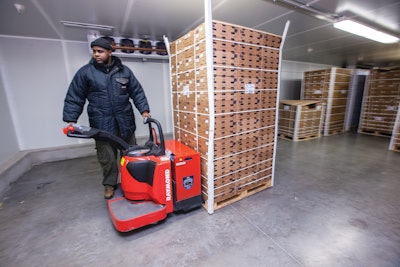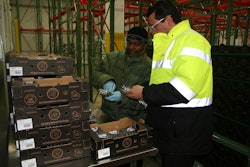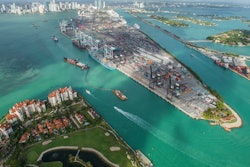
Perishables commodities are a big import-export business, topping $350 billion in U.S. trade worldwide in 2013. South America alone accounts for 30 percent of global refrigerated exports, according to the UN Economic Commission for Latin America, making the perishables industry one of the main pillars of Latin American trade.
While perishable exports from Central and South America have seen dramatic growth in recent years, driven by growing demand from traditional and rising markets alike, there are still some logistical shortcomings that are preventing maximum cold chain efficiency and profitability.
Currently, South American produce is required to enter the U. S. through colder, northern ports, particularly Philadelphia. They are then trucked to market into the warmer Southeast due to concerns over fruit flies and other pests that could threaten local crops and vegetation. However, industry reports cite nearly $35 billion of perishable foods are wasted annually, with nearly half of those losses due to temperature changes experienced in-transit between the grower and the grocer
This roundabout trade route for South American perishables—having to first go north to then go south—unnecessarily adds time, costs and potential profit losses for exporters.
Enter Miami as the first link in the cold chain, and the new hotspot for cold storage.
Flagler Global Logistics is one global logistics company leading the charge to redirect perishables trade routes through South Florida. The company’s new South Florida Logistics Center and USDA-certified cold chain process is saving days and dollars for exporters and consumers in the treatment.
The South Florida Logistics Center, a new multimodal distribution hub adjacent Miami International Airport, started operating in October 2013 with a 170,000-square-foot warehouse featuring 60,000 square feet of dedicated refrigerated space. The Center’s cold storage facility has been a gateway entry point for Chilean blueberries and grapes, Peruvian asparagus, Brazilian ginger and other produce.
During this year’s Valentine’s Day crush, the Center handled a vast overflow of fresh-cut flowers from Miami International Airport, which receives two-thirds of all fresh-cut flowers that are imported to the U.S.
Along with providing importers/exporters with a much-needed storage and distribution facility, a USDA-approved treatment process for perishable items at the Center was introduced. The revolutionary treatment process stabilizes the cold chain integrity by exposing fruits and vegetables to a more uniform temperature, vastly improving the quality of the products.
The new treatment’s filtration and recapturing system makes the process more environmentally friendly. Additionally, the Miami-based entry point of the South Florida Logistics Center decreases the amount of time the products are in transport.
Coupling the cold chain infrastructure in place at South Florida Logistics Center with its direct rail connections and highway access to Port Miami and Port Everglades, not to mention neighboring Miami International Airport, the valuable proposition makes it even more attractive for perishable shippers to take advantage of all Miami has to offer.
At the same time, exporters also have a new gateway to the Southeast that allows them to get their product to market more quickly—adding at least a week or more to their products’ shelf life.
With a growing cold chain infrastructure and services, Miami provides a true competitive advantage that saves time and money for shippers while offering consumers products that are fresher and more affordable.
Chris Scott is president and CEO of Flagler Global Logistics, a wholly owned subsidiary of Florida East Coast Industries, LLC, one of Florida’s oldest and largest full-service commercial real estate, transportation, and infrastructure companies.















